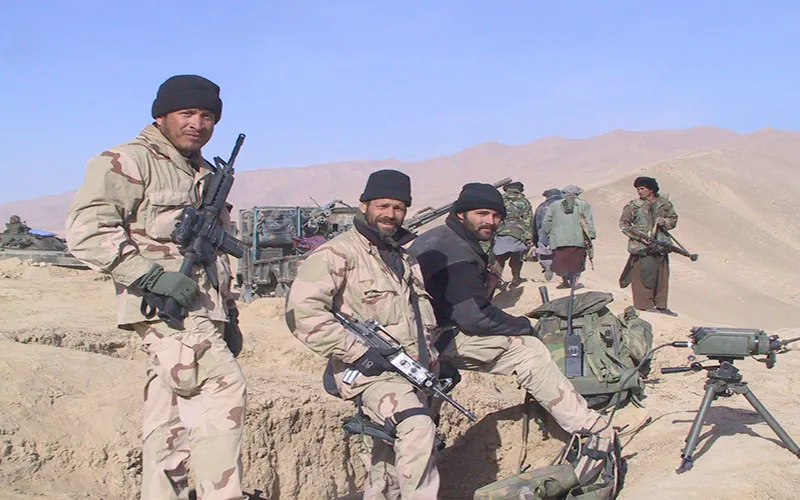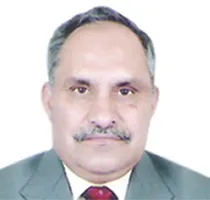-
CENTRES
Progammes & Centres
Location
As signaled by the Myanmar operations against militants, the policy shift in New Delhi must be taken seriously. One can hope that it does have a salutary effect on the extremist elements within the Pakistani establishment and the jihadi organisations located in the Pakistan-occupied Kashmir also.

The machismo on display was unbelievable. News anchors, editors and political commentators along with some defence experts, politicians and even civil society members — all seem to have suddenly developed 56-inch chest that only Prime Minister Narendra Modi boasted of. The reason, of course, was the highly successful cross-border raid in Myanmar. A host of militant groups had established camps in which, until recently, they were living in relative comfort and security. However, it is time to look at the issue calmly, with both feet firmly planted on the earth.
While we are certainly not privy to the exact manner in which the raids were conducted, despite all kinds of speculation, it would be fair to compliment the troops for their professionalism and their skill in carrying out a speedy mission that was able to achieve its goal.If any criticism is due, it is for the short-sighted manner in which the unit's name and photographs of some of the troops were brought into the public domain — completely unnecessary and uncalled for. This lapse puts the members of this unit, including the family members — unnecessarily at risk in the future.The tactical success achieved certainly should not be over-played, given the limited time-frame within which intelligence was collated and the operation launched — it can only imply that it really had very modest aims, regardless of the surrounding hype.
More importantly, it has also signaled a policy shift that can have great strategic significance. It will force the militants to re-think about their selection of safe havens. If they go deeper into Myanmar, they will find themselves vulnerable to interdiction by the Myanmar Army, apart from the fact that the establishment of permanent or semi-permanent camps where they can stay with families is no longer feasible.The political will displayed by this Government and the decisiveness with which Mr Modi acted are certainly praiseworthy and a welcome change from the past. We need to understand that the North-East is no longer suffering from an insurgency, as the term is conventionally defined, as each of the States has a popularly elected Government at its helm and the local population generally supports the Indian state, though some communities certainly have strong feelings about the Central and State Governments inability to meet their socio-political and economic aspirations.
The vast numbers of 'insurgent groups' operating in the area are in reality, criminal gangs involved in the trafficking of drugs, small arms and humans. Unfortunately, local police forces have not developed the wherewithal to take them on and in some cases, along with elements of the bureaucracy and the political class, are completely compromised and working in league with these gangs. This has required the Army to stay on, though it is no longer carrying out classical counter insurgency operations. If the Army also understands this aspect as well and changes its modus operandi accordingly, it has an opportunity to deal a death blow to these criminal gangs with the help of the local population that has been held hostage for so long, though it will certainly be a tough fight.
The assertions of the Pakistani military and political leadership that Pakistan is not Myanmar and that India should not indulge in "adventurism" is just stating the obvious. In that, Myanmar has certainly never supported militant groups operating against India from its territory, though it may not have had the capacity to stop them either. Pakistan, on the other hand, has trained and funded militants located in the territory it occupies to wage war against the Indian state. The fact that India has no designs on Pakistani territory and is strongly focused on lifting its population from poverty towards rapid economic growth is undeniable. Thus, the question of Indian 'adventurism' just does not arise and should not worry the Pakistani establishment. It should in fact concentrate on dealing with the consequences of the jihadi network that it has established and which has now turned against its masters.However, the policy shift in New Delhi must be taken seriously and one can hope that it does have a salutary effect on the extremist elements within the Pakistani establishment and the jihadi organisations located in the Pakistan-occupied Kashmir. The argument that Pakistan is a nuclear power and any Indian trans-Line of Control transgression will lead to war and worse is wholly disingenuous.
The fact that India is a nuclear state has not stopped Pakistan from sending militants not only into Jammu & Kashmir, which they consider disputed, but further afield as well, with little or no worry as to the likely consequences because they claim that they have no control over non-state actors in the region.
Thus, Indian intervention against militant camps in the Pakistan-occupied Kashmir, which India considers under illegal occupation, should also not lead to any escalation given the same logic that governs Pakistani actions. Moreover, Indian action if any, if we are to take Defence Minister Manohar Parrikar, at his word, may be very different from what we have witnessed in the North-East. While the peace dividend has much to offer, as the well-known proverb goes, it takes two hands to clap. Finally, one cannot but applaud the Prime Minister's gesture of felicitating all those who participated in the operation at his residence. Certainly, it's a welcome change from the past where such successes have only been used to gain political mileage, while those responsible have been left in the shadows.
(The writer is a military veteran and consultant with the Observer Research Foundation)
Courtesy: The Pioneer, June 23, 2015
The views expressed above belong to the author(s). ORF research and analyses now available on Telegram! Click here to access our curated content — blogs, longforms and interviews.

Brig. Deepak Sinha (Retd.) was Visiting Fellow at ORF. Brig. Sinha is a second-generation paratrooper. During his service, he held varied command, staff and instructional appointments, ...
Read More +